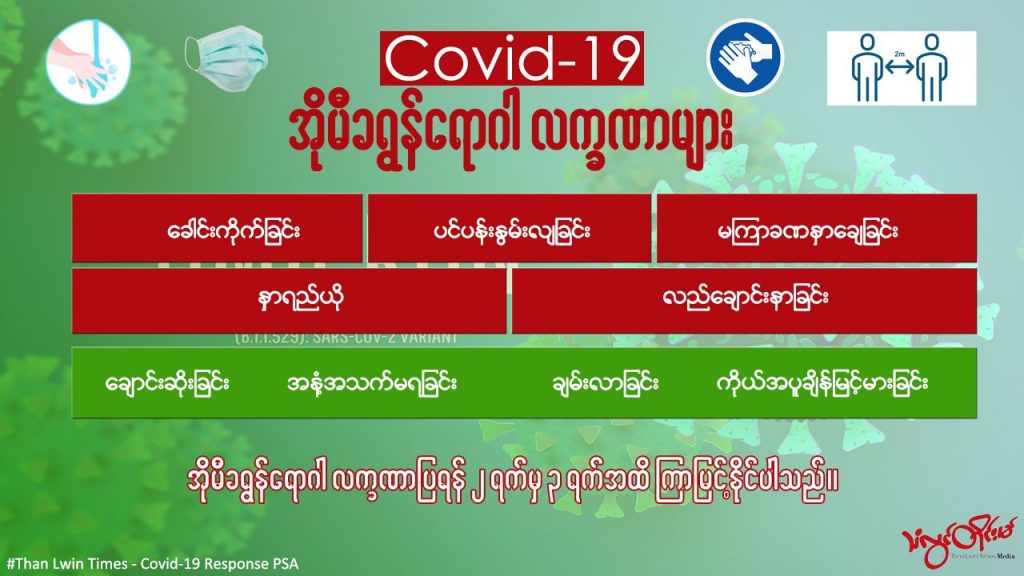Hakhar, February (8)
The military council, which has extended the state of emergency for six months, declared on February 2 that 37 townships in eight regions and states have been placed under martial law.
Chin, Karenni (Kayah), and Karen and Mon States, as well as Sagaing, Magway, Bago, and Tanintharyi Regions, have placed uner martial law and these areas are undergoing intense armed conflict.
The military council claimed that it was applying administrative and judicial martial law powers to better implement security, law and order, and peace in the region.
The relevant military commanders and regional commanders have been granted authority over the security, social, trade, and transportation sectors of the townships that are placed by the military.
Similarly, in the judicial system, the accused will be tried by a military tribunal and may be sentenced to the highest punishment, including death and life imprisonment, and there is no right to appeal.
Chin National Front (CNF)’s spokesman Salai Htet Ni said the military council had to declare martial law because it could not control the territory militarily, and its move was to maintain power by instilling fear in the public.

The military council will only be able to impose martial law in the cities since our resistance forces control 70% of Chin State.
Of the nine townships in Chin State, seven are under martial law, and in those areas, fighting are taking place between the joint force of the CNF and resistance forces and junta forces.
U Aung San Myint, second secretary of the Karenni National Progressive Party (KNPP), pointed out that the military council declared martial law to erase the evidence of crimes against humanity committed by them and to conduct more atrocities.
U Aung San Myint pointed out that Karenni (Kayah) state, which has seven townships, includes four townships that have been placed under martial law, but these areas cannot be controlled by the military council.
All Myanmar Students Democratic Front (ABSDF)’s Central Steering Committee Comrade Salai Yaw Aung, responded that the country’s instability is due to a military coup and could not accept the military council’s statement that it would bring about democracy.
Within 10 days of the council’s announcement of a ceasefire against ethnic armed groups in 2023 at the beginning of the year, aerial bombings were carried out on the headquarters and military bases of ethnic armed groups.
The regime forces have clashed with the People’s Defense Forces (PDFs), including Ethnic Resistance Organizations, with ongoing airstrikes.
News-Than Lwin Times

